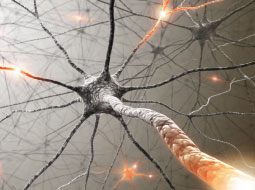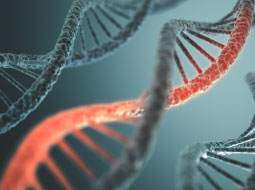Online courses directory (423)
这是一门面向人文和社科类学生的化学课程。
100 brief, informative videos covering the easiest & most commonly asked concepts on the Chemistry Regents!
Gain the confidence and knowledge needed to pass the Chemistry Regents with these 15 often asked concepts!
Explore the secret of life through the basics of biochemistry, genetics, molecular biology, recombinant DNA, genomics and rational medicine.
This course is designed to provide an understanding of how the human brain works in health and disease, and is intended for both the Brain and Cognitive Sciences major and the non-Brain and Cognitive Sciences major. Knowledge of how the human brain works is important for all citizens, and the lessons to be learned have enormous implications for public policy makers and educators.
The course will cover the regional anatomy of the brain and provide an introduction to the cellular function of neurons, synapses and neurotransmitters. Commonly used drugs that alter brain function can be understood through a knowledge of neurotransmitters. Along similar lines, common diseases that illustrate normal brain function will be discussed. Experimental animal studies that reveal how the brain works will be reviewed.
Throughout the seminar we will discuss clinical cases from Dr. Byrne's experience that illustrate brain function; in addition, articles from the scientific literature will be discussed in each class.
Introduction to the linguistic study of language pathology, concentrating on experimental approaches and theoretical explanations. Discussion of Specific Language Impairment, autism, Down syndrome, Williams syndrome, normal aging, Parkinson's disease, Alzheimer's disease, hemispherectomy and aphasia. Focuses on the comparison of linguistic abilities among these syndromes, while drawing clear comparisons with first and second language acquisition. Topics include the lexicon, morphology, syntax, semantics and pragmatics. Relates the lost linguistic abilities in these syndromes to properties of the brain.
This course will begin with brief overview of what important current research topics are in oceanography (physical, geological, and biological) and how acoustics can be used as a tool to address them. Three typical examples are climate, bottom geology, and marine mammal behavior. Will then address the acoustic inverse problem, reviewing inverse methods (linear and nonlinear) and the combination of acoustical methods with other measurements as an integrated system. Last part of course will concentrate on specific case studies, taken from current research journals. This course is taught on campus at MIT and with simultaneous video at Woods Hole Oceanographic Institution.
Build your earth science vocabulary and learn about cycles of matter and types of sedimentary rocks through the Education Portal course Earth Science 101: Earth Science. Our series of video lessons and accompanying self-assessment quizzes can help you boost your scientific knowledge ahead of the Excelsior Earth Science exam . This course was designed by experienced educators and examines both science basics, like experimental design and systems of measurement, and more advanced topics, such as analysis of rock deformation and theories of continental drift.
The course includes survey and special topics designed for graduate students in the brain and cognitive sciences. It emphasizes ethological studies of natural behavior patterns and their analysis in laboratory work, with contributions from field biology (mammology, primatology), sociobiology, and comparative psychology. It stresses mammalian behavior but also includes major contributions from studies of other vertebrates and of invertebrates. It covers some applications of animal-behavior knowledge to neuropsychology and behavioral pharmacology.
This comprehensive biology course introduces a broad range of biology subjects including molecular biology, gene, cell biology, organic and inorganic compounds, experimental methods and designs, regulatory mechanisms in plants and animals, pathogens and parasites and more. This free online course builds on our Introductory Biology course. It is particularly suitable for any student of biology at second level, or anyone who wants to gain more knowledge and understanding of the biological world around us.
This free online course in our Biology suite examines natural selection, patterns of evolution and molecular biology. It also explores DNA, protein synthesis and mutations and gene mapping. It is a practical guide for those working in life sciences who want to refresh their knowledge of biology or for any student of biology studying the subject at second level.
5.33 focuses on advanced experimentation, with particular emphasis on chemical synthesis and the fundamentals of quantum chemistry, illustrated through molecular spectroscopy. The written and oral presentation of experimental results is also emphasized in the course.
Acknowledgements
The materials for 5.33 reflect the work of many faculty members associated with this course over the years.
WARNING NOTICE
The experiments described in these materials are potentially hazardous and require a high level of safety training, special facilities and equipment, and supervision by appropriate individuals. You bear the sole responsibility, liability, and risk for the implementation of such safety procedures and measures. MIT shall have no responsibility, liability, or risk for the content or implementation of any of the material presented.
Legal Notice
Other Versions
Other OCW Versions
Archived versions: ![]()






















